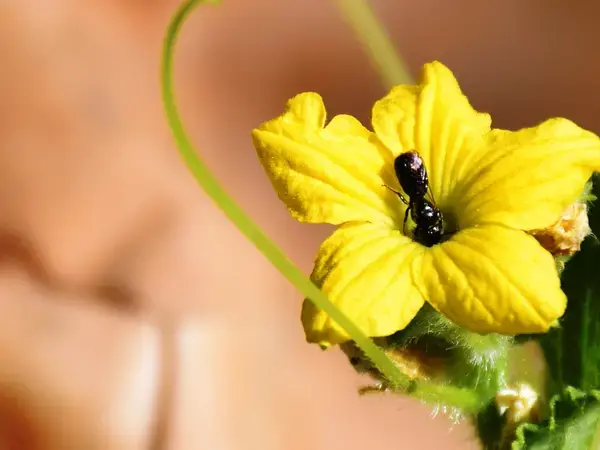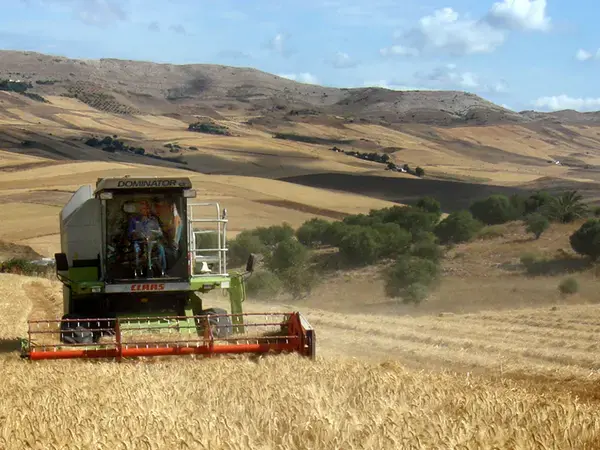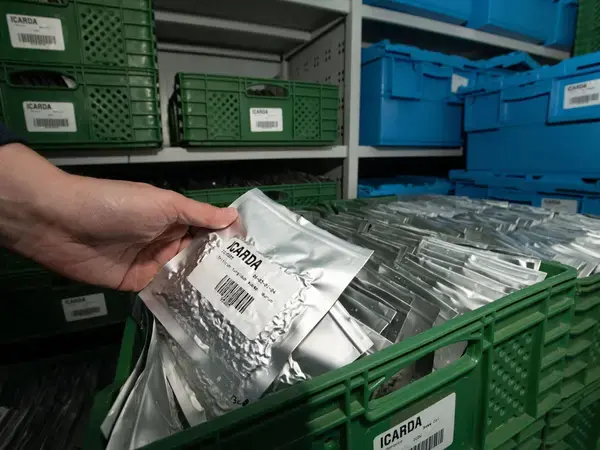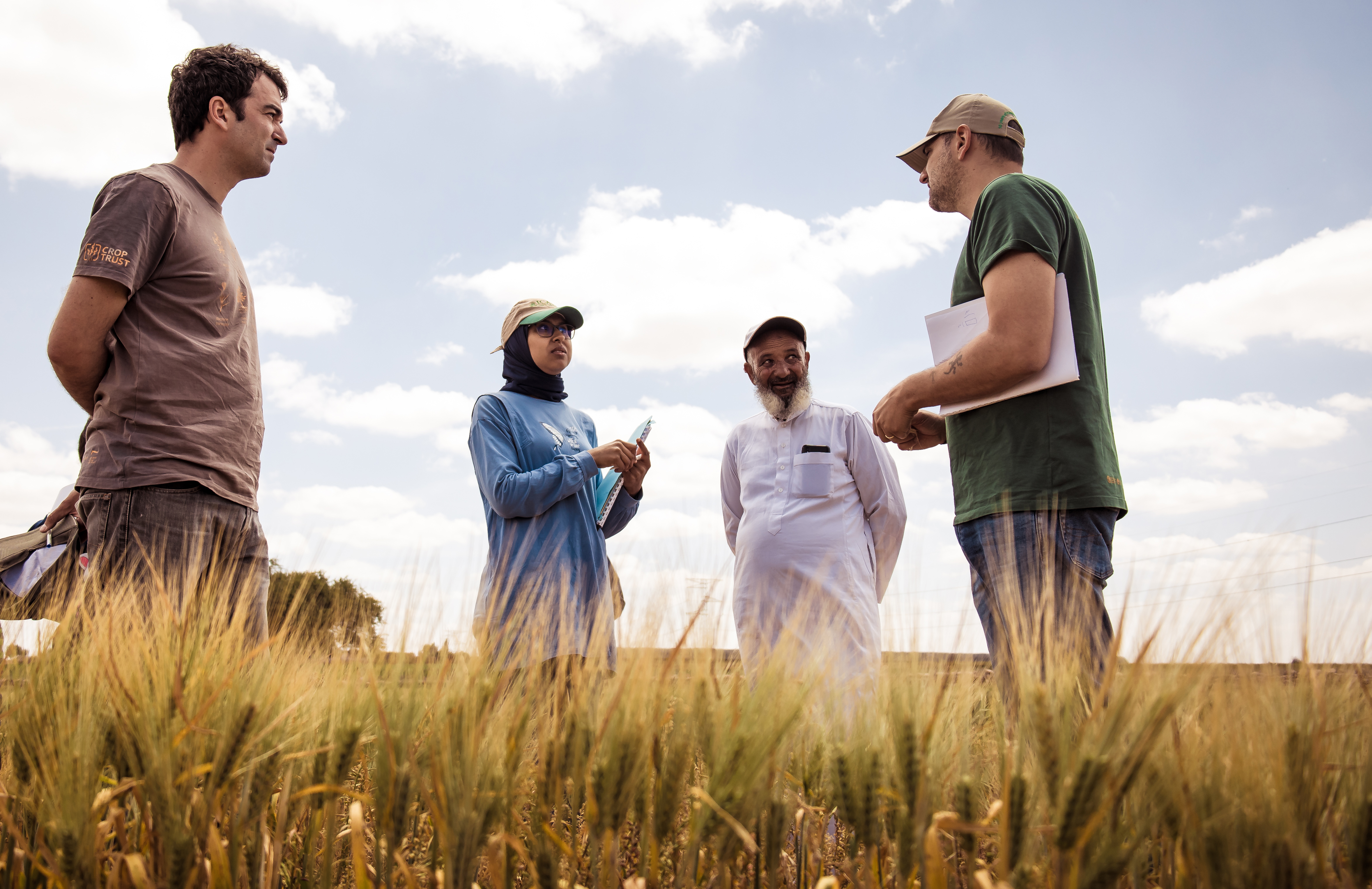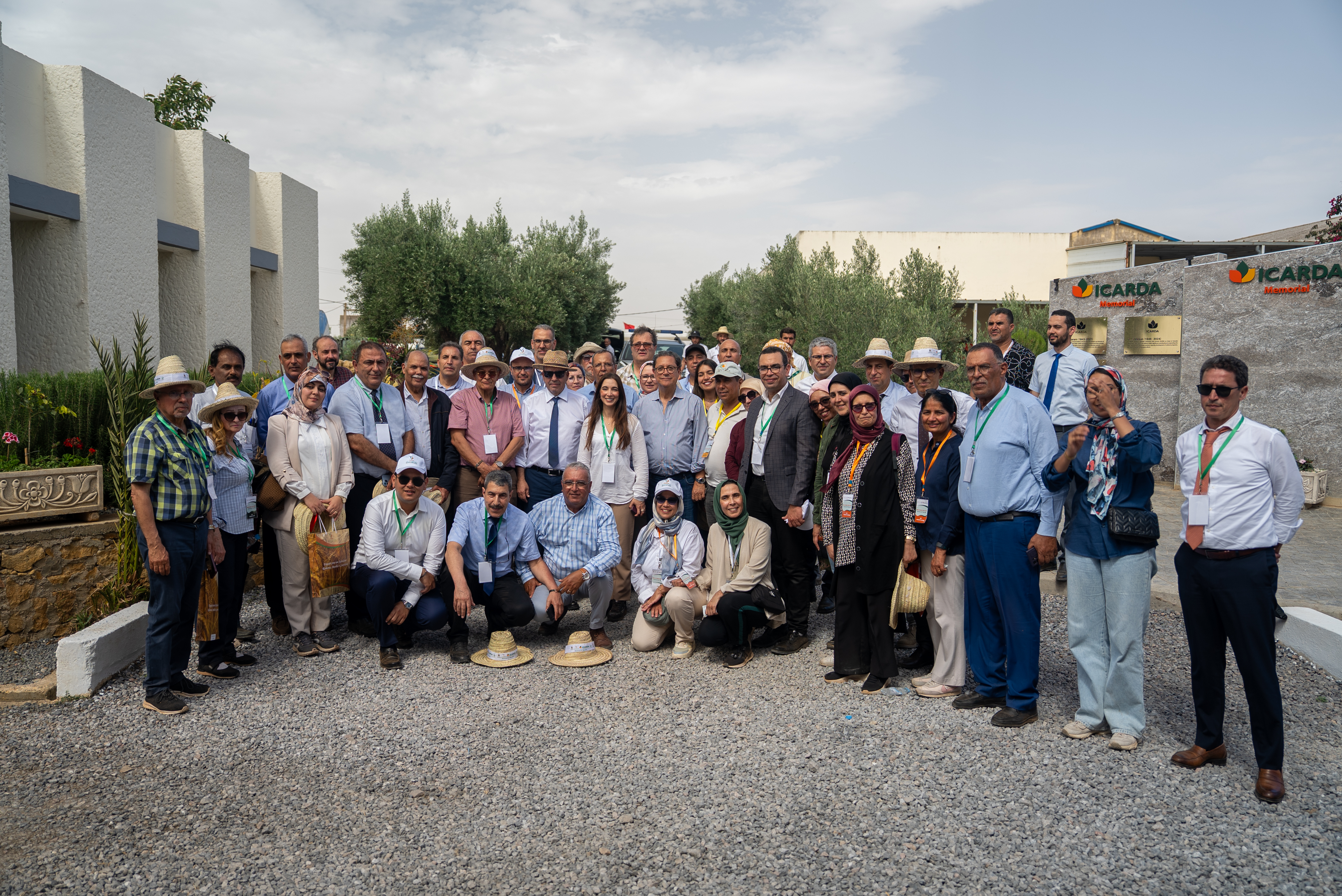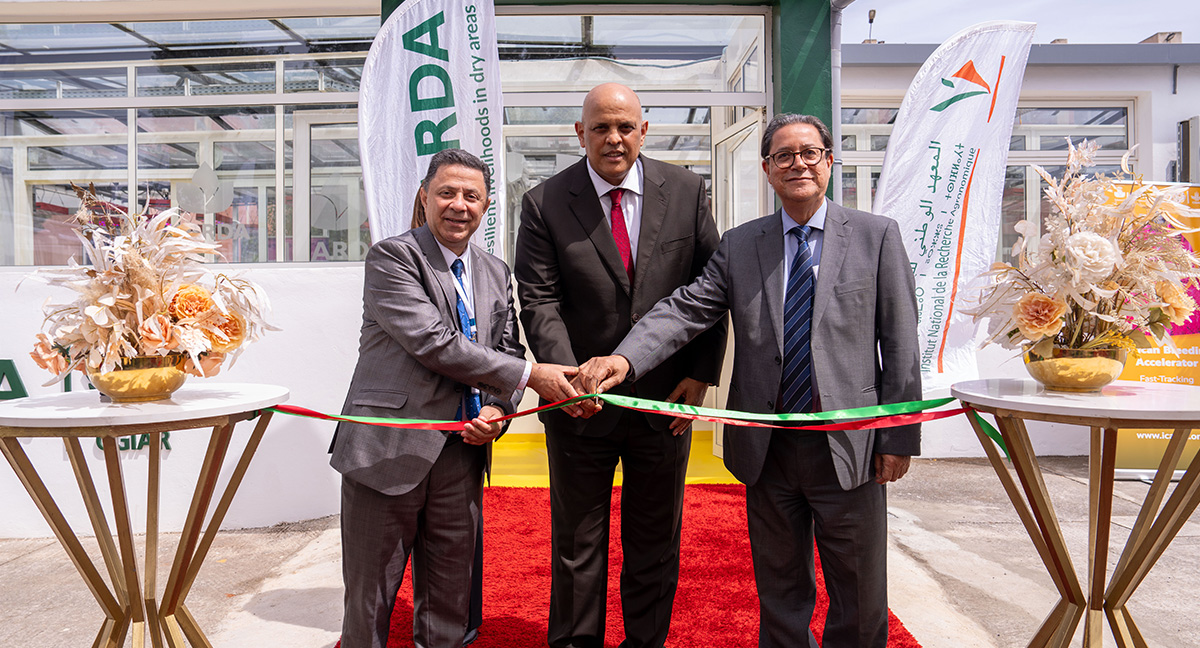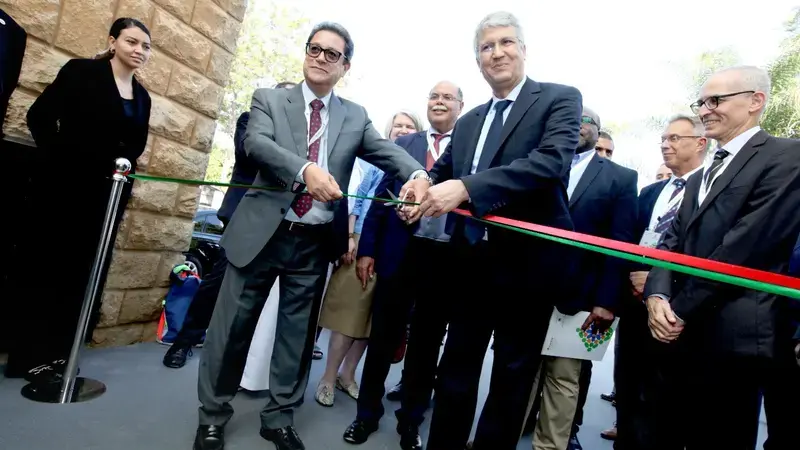
ICARDA Morocco Country Office established in 1985
ICARDA Morocco Research platform launched in 2013
ICARDA Resident Representative: Dr. Zakaria Kehel
Address: Avenue Hafiane Cherkaoui, Rabat-Institut, Campus de l’INRA, Guich (Madinat Al Irfane), Rabat
Research Stations Location: https://goo.gl/maps/G2uSKTtkcQvyNMrw9
Overview
While agriculture contributes to 15% of Morocco's gross domestic product (GDP), this varies widely according to rainfall. The country encompasses about nine million ha of agricultural arable land, yet increasing climate change impacts can devastate Moroccan agriculture, threatening food sovereignty and the livelihoods of millions of farmers.
ICARDA works with the Kingdom of Morocco on groundbreaking initiatives to create sustainable and resilient livelihoods for farming households and contribute to natural resource conservation. Our unique dryland agricultural expertise, combined with extensive networks of research and development partners, including farming communities, ensures we provide people-centred solutions integrated directly into farming activities and food systems.
ICARDA formalized its Morroco partnership by signing a formal agreement with the Government of the Kingdom of Morocco on the 18th of January, 1985. The Institut National de la Recherche Agronomique du Maroc (INRA-Morocco) has been ICARDA's key partner among other Moroccan governmental institutions and universities.
ICARDA manages around 30% of its global budget in Morocco (approx. USD 10 million), distributed across 72+ projects led by 21 international scientists and over 60 national staff. Within the strategic alliance, ICARDA established its rainfed research platform in the country on the 25th of November 2013, and since, more than USD 10 million has been invested in establishing the platform in Rabat and Marchouch, which combined, encompass over 500 m2 of laboratory facilities and 160 hectares of field research. A groundbreaking genebank was also established with a capacity of 150,000 medium-term storage accessions. Currently, the genebank hosts 110,000 accessions of stored wheat, barley, lentil, and chickpea.
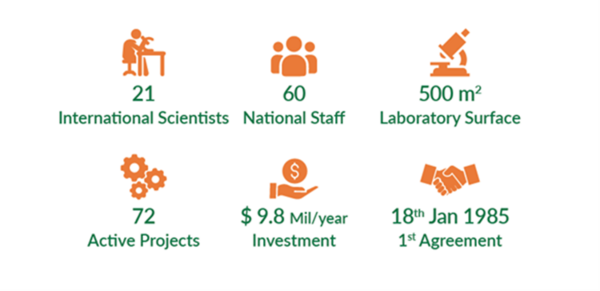
ICARDA under Generation Green
As part of the continued development of the agricultural sector, Morocco has launched a new strategy under the name of "Generation Green 2020-2030". It is based mainly on the development of product supply chains, the mechanization of the agricultural sector, and the organization of professionals. It is also focused on increasing the coverage rates for food needs, increasing gross agricultural production, supporting agricultural exports, and increasing the volume of investments. Rather, the new "Generation Green" plan focused on rehabilitating the farmer and raising his social and economic status.
The strategy guides ICARDA's work through its objective: "the agriculture sector needs to become a stronger source of employment and a better instrument to improve livelihoods for rural people."
ICARDA is committed to developing and deploying scientific solutions for rural populations to reduce poverty, raise sustainability, create employment, and ensure equitable livelihoods. Our innovations, especially the deployment of digital tools, help develop youth employment in village enterprises while integrating women cooperatives' roles as rural income generators. We also research and develop new value chains for healthier foods and advocate for and support significant development of green technologies. We are engaged in joining efforts with INRA to adopt conservation agriculture in 1 million hectares and increase cereal yields by 50%.
Download ICARDA in Morocco's booklet.
ICARDA's work in Morocco is made possible through the support of the government of Morocco, CGIAR's Research Program on Wheat, International Maize and Wheat Improvement Center (CIMMYT), CGIAR Genebank Platform, Global Crop Diversity Trust, International Center for Tropical Agriculture (CIAT), CGIAR Research Program on Climate Change, Agriculture and Food Security (CCAFS), CGIAR GENDER Platform, CGIAR Research Program on Livestock, International Livestock Research Institute (ILRI), Massachusetts Institute of Technology, German Federal Ministry of the Environment, Nature Conservation and Nuclear Safety (BMU), Swedish University of Agricultural Sciences, International Fund For Agricultural Development (IFAD), Arab Fund for Economic and Social Development (AFESD), OPEC Fund for International Development (OFID), Food and Agriculture Organization (FAO), European Commission, Partnership for Research and Innovation in the Mediterranean Area (PRIMA), and the World Bank.
Activities
For more than four decades, we have worked closely with local research institutions, communities, higher education partners, and governmental institutions to:
Genebank: Collect, conserve, and research plant genetic resources vital for climate-smart crops.
Breeding: Develop crops adapted to climate stresses and meet consumers' demand
Livestock: An integrated approach to favor crop-livestock system resilience.
Agronomy: Develop innovative soil, water, and agronomy technologies.
Capacity Development: of researchers, farmers, partners, and institutions to better develop and deliver new technologies.
Gender focus: Enhancing access to agricultural innovations for women and youth.
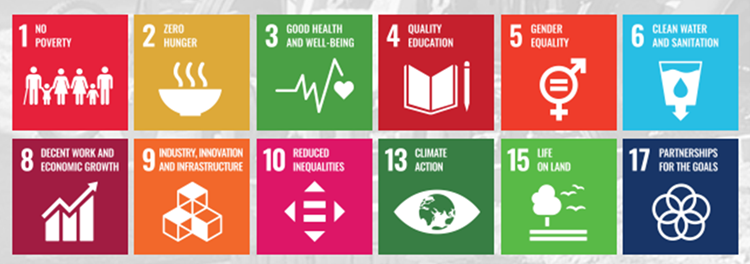
Impact
Inauguration of ICARDA's Morocco Genebank in May 2022
Morocco is now a primary global holder of diversity, with 108,000 accessions conserved.
66 varieties of crops were released in Morocco, including six new drought-tolerant barley and durum wheat.
An integrated package was developed to control cochineal in cactus, including biopesticides and natural enemies, and identify resistant ecotypes.
Validation of ultra-low energy drippers to achieve 70% energy savings and promote solar-panel irrigation methods.
A long-lasting partnership has promoted the commitment to convert 1 million hectares of Conservation Agriculture.
A Young Agricultural Scientist Program and many projects have ensured the completion of MSc and Ph.D. studies for over 154 students and young scientists since 2013.
The intense work on Farming with Alternative pollinators (FAP) has identified more than 20 previously unknown pollinator species, and Morocco has joined the Coalition of The Willing on Pollinators.
Morocco has been selected as a central hub for two vast CGIAR initiatives: F2R-CWANA and Excellence in Agronomy.

